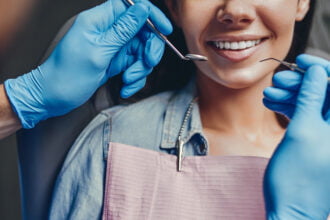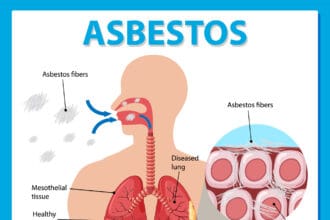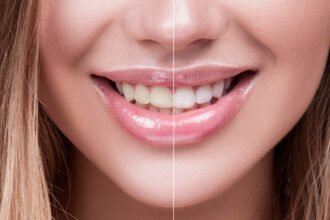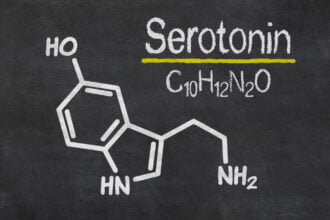Remember playing in the dirt when you were young? Did you ever get in any mud fights? Remember laughing as the family dog licked ice cream off your face? These aren’t just hazy snapshots of an idealized childhood. Turns out experiences of this nature may influence your health as you develop into an adult because they affect your microbiome.
Science is just beginning to comprehend the human microbiome. Merriam Webster defines “microbiome” as a “community of microorganisms (such as bacteria, fungi, and viruses) that inhabit a particular environment.” Humans have a big microbiome. A study published in the journal NCBI estimates that we have anywhere from 10-100 trillion microbial cells, mostly in the gut. The microbiome consists of the genes inside microbial cells.
Increasingly, we’re seeing that an infant’s microbiome makes a big difference when it comes to whether that infant will develop allergies and conditions like Type 1 Diabetes later on in life. Here are some of the surprising findings:
How Dirt Helps
If you’re a kid, playing in the dirt and sand and mud just makes sense. You don’t have to think about it — you’re having fun. There’s a very good reason why your instinct tells you to get dirty.
Dr. Elanna Yalow of Kindercare — an early childhood education center — highlights multiple studies that reveal why dirt is good for kids:
Brain health
A study from the University of Bristol and University College London found that a type of bacteria in the soil causes the brain to release serotonin, which helps maintain mental health and ward off depression. Additionally, a study in the American Journal of Public Health found that an activity like gardening can help relieve symptoms of ADHD in children.
Heart health
Compared to infants in sterile environments, a study from Northwestern University found that infants who have high amounts of exposure to microbes, such as those found in mud, have lower rates of heart disease and stroke when they reach adulthood. They experience less arterial inflammation, which is linked to cardiovascular heart disease. They also develop stronger immune systems.
The Northwestern University study even found that children may benefit from ingesting dirt. “If our son drops something on the floor, we don’t really care if he picks it up and eats it,” said Thom McDade, co-author of the study. Ingesting a certain amount of dirt is only natural when you’re a kid playing around in the stuff.
How Dogs Make a Difference
“Dogs protect kids, especially in early childhood, because the kids’ microbiome is still forming,” says Dr. Charles Raison from the University of Wisconsin–Madison. He’s referring to the fact that dogs help infants develop a more diverse microbiome. This, in turn, helps kids develop fewer allergies, lowers their chances of having asthma, and lessens obesity rates.
Anita Kozyrskyj, a paediatric epidemiologist at the University of Alberta in Edmonton, Canada, began with a pilot study of 24 infants at the age of 4 months. Out of those 24 kids, 15 lived in a house with at least one dog or cat. The 15 kids who lived with a pet had a richer microbiome than the kids who didn’t. Kozyrskyj then expanded the study to 746 infants and achieved the same results, with an added bonus: infants with pets (70 percent of which were dog) had more Firmicutes microbes in their microbial communities. Firmicutes microbes have been shown to lower the risk of allergies and obesity.
The conclusion is that dogs share healthy microbes with kids. In a separate study, researchers looked at data on 275,000 school-age children. They found that the kids who grew up with dogs were 13 percent less likely to develop asthma.
The Benefits of Breast Milk
As discussed so far, babies benefit from a greater diversity of microbes. Allergology International identifies the first three years of a baby’s life as the time during which the microbiome establishes itself. The active tense is relevant here: the microbiome is its own ecosystem, a network of microorganisms that seek a host.
Vaginal delivery imparts a diverse microbiome to the baby. Caesarean delivery contributes to a lower diversity of microbiota and is associated with an increased likelihood of the baby developing allergic rhinitis (hay fever, seasonal allergies), celiac disease (severe gluten intolerance), and asthma.
The baby’s environment is the most influential factor for the microbiome, and breast milk is the most beneficial for proper development. Not only does breast milk help the baby develop a robust immune system, a separate study revealed that breastfeeding can help ward off Type 1 Diabetes. Along with bacteria that contribute to the gut microbiome, the acidity of breast milk is part of its magic formula. In the study, scientists used acidic water to replicate the lactic acid concentration in breast milk, and found that a “change in the acidity of liquids consumed dramatically alters the intestinal microbiome.”
Many parents may also be concerned about how tap water affects their infant’s microbiome because community water systems use monochloramine — a type of chlorine — to disinfect water. A study found that monochloramine disrupted the immune system in rats, but the extent to which this applies to infants is unclear. To be on the safe side, run tap water through a carbon/KDF adsorption filter, or boil it for several minutes.
Avoid Antibiotics
Allergology International also found antibiotics to be a big disruptor of a baby’s microbiome. Antibiotics don’t just eliminate important microbiota from the microbiome, they also cause drug-resistant microbiota to proliferate. Antibiotic use increases a child’s chances of contracting eczema, asthma, and diabetes.
Sometimes, for a very sick baby, it’s impossible to avoid antibiotics. Consult with your doctor about possible alternatives. If there aren’t any, work on rehabilitating the microbiome through lots of outdoor playtime, puppy time, and an exceptional diet.
Healthy Foods Are Essential
Lastly, after weaning a child on breast milk, it’s essential to feed her a diverse array of healthy, whole foods. Avoid processed foods, and if baby will eat fermented foods such as yogurt, kefir, and sauerkraut, include them in the diet. Dr. Akil Palanisamy also recommends fruits, vegetables, healthy whole grains, legumes, nuts and seeds.
A healthy microbiome is essential for healthy childhood development. It’s possible to view many of our modern problems, including gluten intolerance, allergies, and diabetes, as our reaction to a sterile, unnatural environment chock-full of processed foods and indoor downtime. Cleanliness isn’t necessarily godliness when it involves antibacterial hand-soaps and hand sanitizers. For best results with baby, consider the microbiome priority number one.










